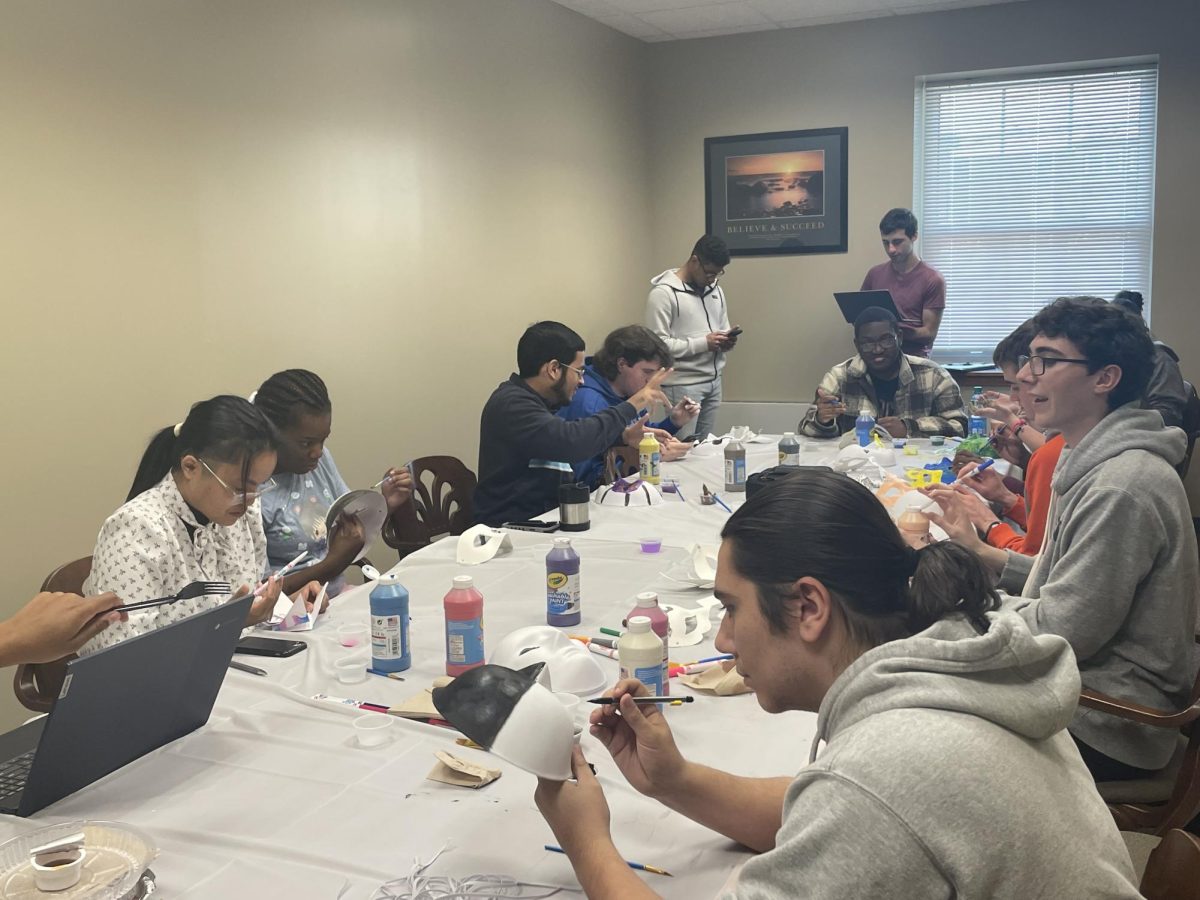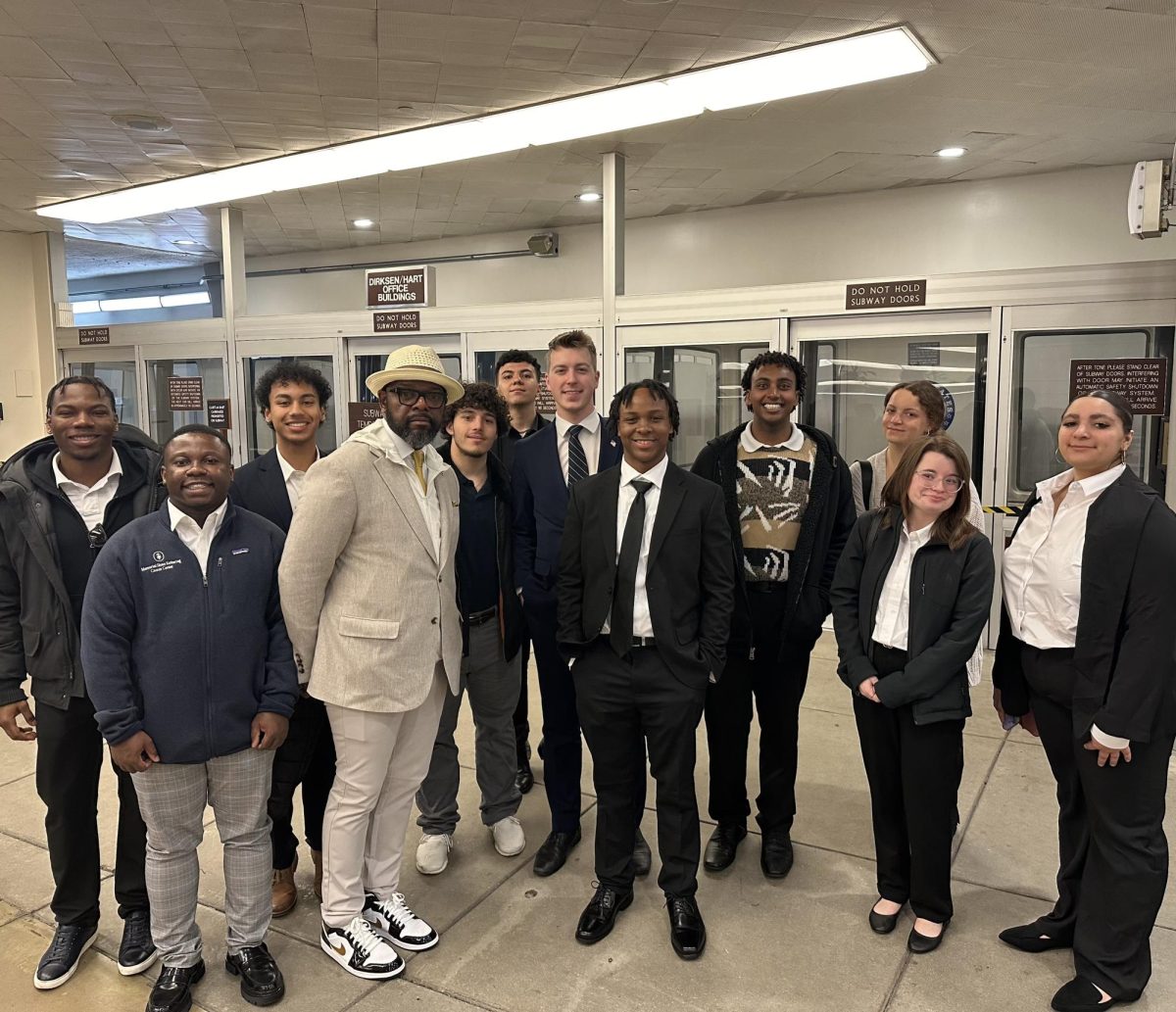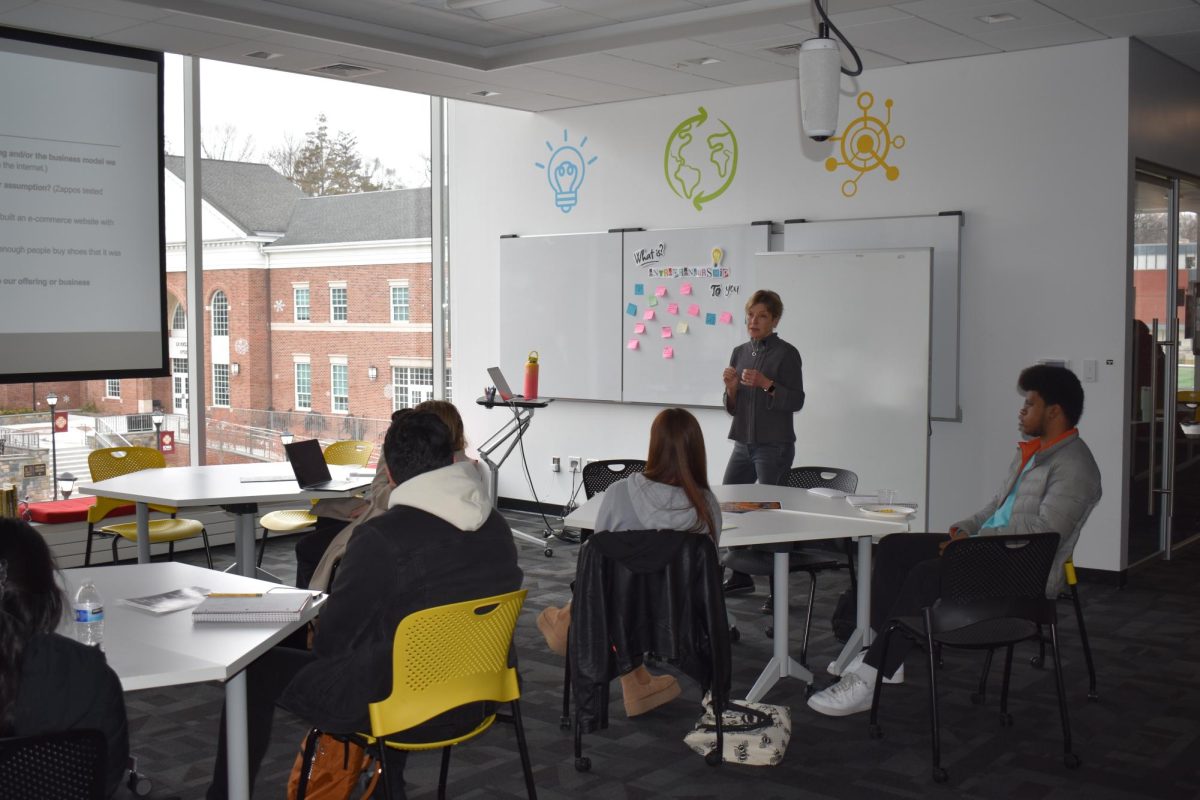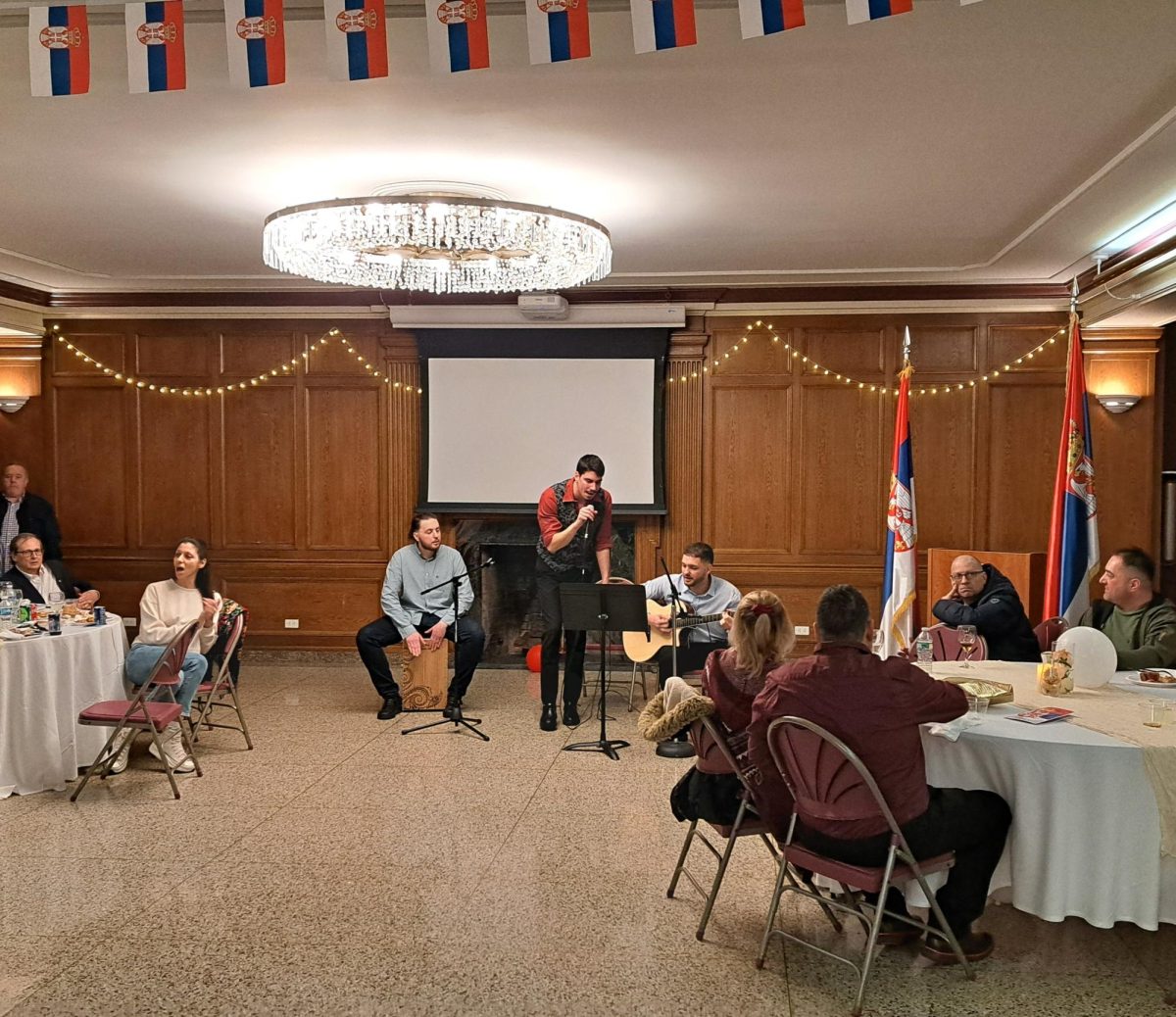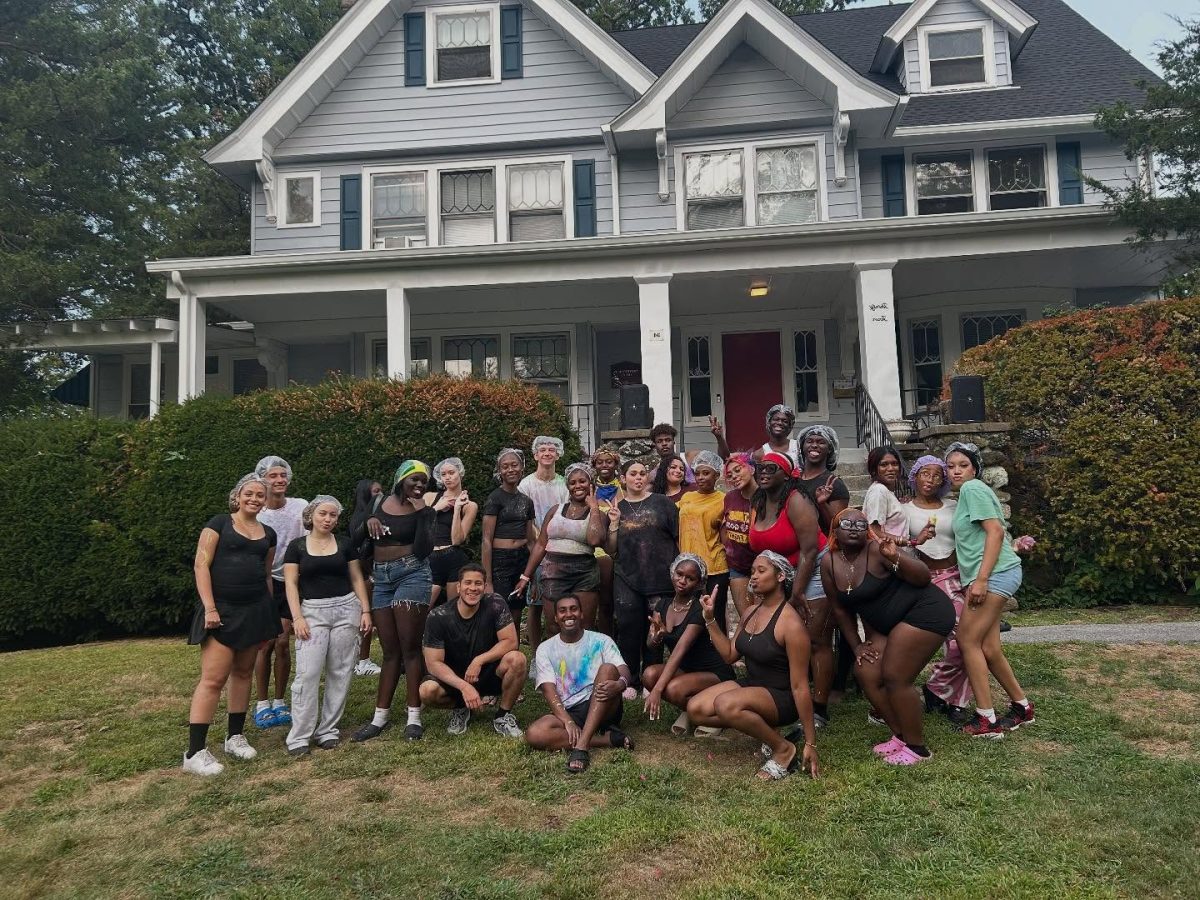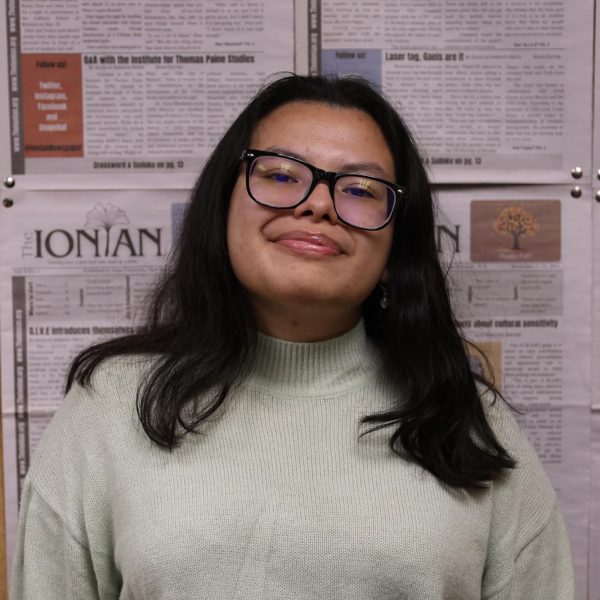Gathered in Conference Room 1 across from the Ionian office, members of the Neurodiversity Club painted and decorated masks in the Halloween spirit for “Masking Masquerade.” The room was changed 20 minutes before the event, but it did not deter attendees from attending. The event started promptly at noon as students were eager to express their creativity.
Masking refers to the practice of cancelling or suppressing aspects to one’s neurodivergent traits or conditions to fit within societal or workplace norms. This artificial performance of social behaviors is a sort of camouflage that is seen as more acceptable in a neurotypical society. Neurodivergent individuals feel pressured to conform due to fears of alienation and lack of acceptance.
Masking is harmful as it is exhausting for members of the neurodiverse community. It takes work even though masking may be subconscious. Making can also cause anxiety and depression.
President of the Neurodiversity Club, Alesandra Payne’s favorite holiday is Halloween. Payne wanted to combine her love for the holiday and her passion for the Neurodiversity Club. This is the second time that the club has hosted “Masking Masquerade.” She thinks of masking as the art of blending in. An example of masking would be laughing along with jokes you do not understand, copying facial expressions and forcing yourself to smile or make eye contact in conversations.
Students were able to choose from two types of masks, a masquerade or full-face mask. There were enough masks for Gaels to take multiple.
Regular and watercolor markers were used to make simple or intricate designs. Some students modeled their designs after iconic villains such as the Joker. Meanwhile, others played around with the paint, decorating as they went along.
Graduate student Allison Dumlao always enjoys coming to neurodiversity events.
“The vibes keep bringing me back to neurodiversity and also the paint,” Dumlao said.


